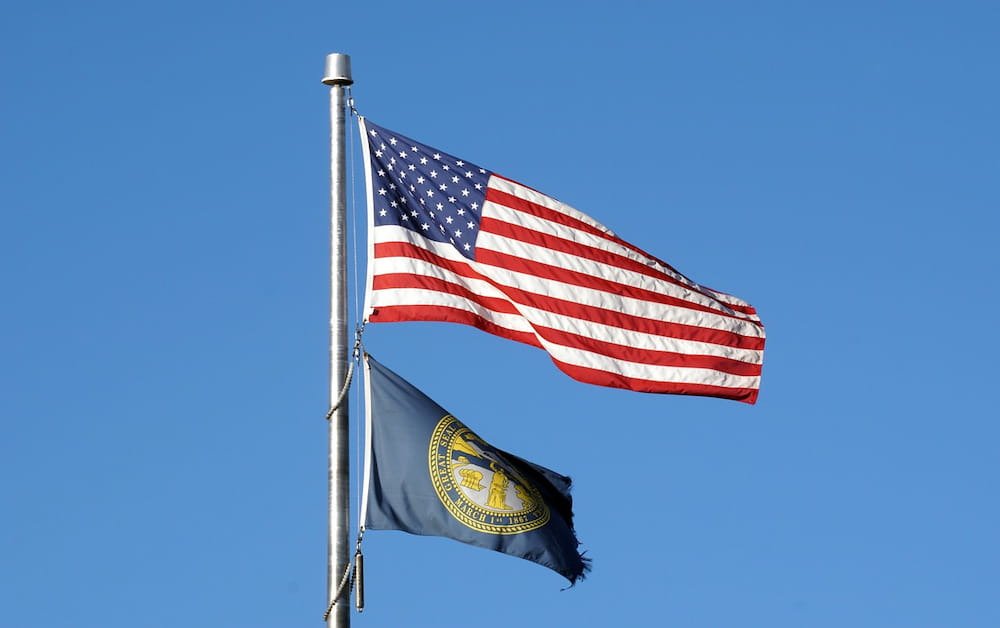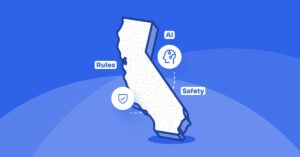Introduction
Nebraska has recently made significant strides in the realm of consumer privacy by enacting the Nebraska Data Privacy Act (NDPA), a comprehensive piece of legislation that aligns the state with others in bolstering protections for individuals’ personal information. The NDPA represents a far-reaching effort to safeguard personal data and grant Nebraska residents enhanced control over the use and dissemination of their information.
This landmark legislation introduces stringent regulations governing the collection, processing, and commercial utilization of personal data, reflecting an evolving understanding of the critical importance of digital privacy in today’s interconnected world. By imposing strict guidelines on how personal data is handled, the NDPA aims to ensure that individual’s privacy rights are respected and upheld in an increasingly data-driven society. Nebraska’s proactive approach in enacting the NDPA underscores its commitment to prioritizing the privacy and security of its residents’ personal information.
Scope of regulation
The Nebraska Data Privacy Act (NDPA) encompasses a wide range of regulations to protect the privacy rights of Nebraska residents and govern the handling of personal data by businesses operating within the state. Here are the key aspects of its scope:
Data protection rights: The NDPA furnishes Nebraska residents with a broad range of data protection rights, ensuring that individuals have control over their personal information and can make informed decisions about its use and disclosure.
Covered businesses: The NDPA applies to businesses that collect, process, or sell personal data of Nebraska residents. This includes various entities such as financial institutions, healthcare providers, online service providers, and other businesses that conduct operations within Nebraska.
Regulation of data processing: The NDPA regulates the collection, processing, and sale of personal data, imposing strict requirements on businesses to ensure transparency, accountability, and fair treatment of individuals’ data.
Data protection assessments: Businesses subject to the NDPA must conduct data protection impact assessments (DPIAs) to evaluate their data processing activities’ potential risks and impacts on individuals’ privacy rights.
Enforcement by authorities: The Nebraska Attorney General is empowered to enforce compliance with the NDPA, investigate violations, and impose penalties on non-compliant businesses, ensuring accountability and adherence to privacy regulations.

Understanding personal data
Personal data encompasses a broad spectrum of information relating to an identifiable individual. This includes but is not limited to names, addresses, email addresses, financial details, and even more sensitive data such as genetic or biometric information. The NDPA acknowledges the evolving nature of personal data and seeks to address the challenges posed by its widespread collection and utilization.
Sensitive data under the NDPA
Sensitive data, as defined by the Nebraska Data Privacy Act, encompasses a variety of personal information that requires special protection due to its sensitive nature. Here’s a breakdown of how the NDPA addresses sensitive data:
Definition: The NDPA defines sensitive data by including categories such as genetic or biometric data, racial or ethnic origin, sexual orientation, religious beliefs, and health-related information.
Consent requirement: Controllers responsible for processing personal data must obtain explicit consent before processing consumers’ sensitive data. This requirement ensures that individuals have control over using and sharing their sensitive information.
Protection measures: The NDPA mandates that controllers implement adequate measures to protect sensitive data from unauthorized access, disclosure, or misuse. These measures may include encryption, access controls, and other security protocols.
Special consideration for children: In cases involving the processing of sensitive data of known children, controllers must adhere to federal regulations such as the Children’s Online Privacy Protection Act (COPPA) to protect minors’ privacy rights.
Data Protection Impact Assessments
The Nebraska Data Privacy Act (NDPA) requires businesses involved in processing personal data to conduct Data Protection Impact Assessments (DPIAs). DPIAs are systematic assessments designed to identify and mitigate potential risks and impacts on individuals’ privacy rights associated with data processing activities.
These assessments involve a thorough evaluation of various factors, including the nature, scope, context, and purposes of the data processing and potential risks to individuals’ privacy. By conducting DPIAs, businesses can proactively identify privacy risks and implement appropriate measures to ensure compliance with the NDPA and protect individuals’ privacy rights.
DPIAs are crucial in promoting transparency, accountability, and responsible data-handling practices. They help businesses understand the potential consequences of their data processing activities and take necessary steps to minimize privacy risks and safeguard individuals’ personal information.
Overall, DPIAs under the NDPA serve as an essential tool for businesses to assess and address privacy concerns, fostering trust and confidence among consumers regarding the protection of their personal data.
Consumer rights under the NDPA
The Nebraska Data Privacy Act (NDPA) grants consumers various rights to control their personal data:
Rights of access: Consumers can access their personal data held by businesses covered under the NDPA.
Rights of deletion: Consumers can request the deletion of their personal data, ensuring they have control over their information.
Rights of portability: The NDPA grants consumers the right to request the transfer of their personal data to another entity or service.
Rights of correction: Consumers have the right to correct inaccuracies in their personal data.
Right to opt-out: Consumers can opt out of processing their personal data for specific purposes, such as targeted advertising or automated profiling.

Obligations of businesses under the NDPA
Businesses operating under the Nebraska Data Privacy Act (NDPA) are entrusted with several key responsibilities. Foremost among these is the implementation of robust data security practices aimed at safeguarding personal data from unauthorized access, disclosure, alteration, or misuse. Such measures are imperative for ensuring the protection and privacy of individuals’ sensitive information, in line with the provisions set forth by the NDPA.
Additionally, covered entities must prioritize transparency in their operations by providing consumers with clear and easily accessible information regarding their data processing practices. This transparency empowers individuals to make informed decisions about using their personal data, fostering trust and accountability in business-consumer relationships.
Moreover, under the NDPA, businesses must obtain explicit consumer consent before processing sensitive data. This consent ensures that individuals maintain control over their personal information and are fully aware of how the organization will utilize it.
By adhering to these obligations, businesses can not only comply with the regulatory framework established by the NDPA but also cultivate a culture of data protection and privacy that prioritizes the rights and interests of consumers. In doing so, they build a safer and more trustworthy digital environment for all stakeholders involved.
NDPA applicability
The Nebraska Data Privacy Act (NDPA) applies to businesses and entities that meet the following criteria:
Conducting business in Nebraska: The NDPA applies to persons conducting business within the state of Nebraska.
Serving Nebraska residents: The NDPA covers entities that produce products or services consumed by Nebraska residents.
Processing personal data of Nebraska residents: Businesses processing personal data of Nebraska residents are subject to the NDPA.
Engaging in sale of personal data: Entities involved in selling personal data must comply with the NDPA.
These criteria ensure that the NDPA covers a wide range of businesses and activities that process or sell personal data within Nebraska, thereby enhancing data protection and privacy rights for Nebraska residents.
Enforcement by the Nebraska Attorney General
The Nebraska Attorney General holds the authority to enforce compliance with the Nebraska Data Privacy Act (NDPA). This entails investigating violations and imposing penalties on businesses found to be non-compliant with the provisions of the NDPA. By wielding this enforcement power, the Attorney General plays a crucial role in upholding accountability within the state’s data privacy landscape. Furthermore, this enforcement mechanism reinforces the significance of adhering to privacy regulations, thereby fostering a culture of respect for individuals’ privacy rights and promoting trust between businesses and consumers.

Impact on targeted advertising
The Nebraska Data Privacy Act (NDPA) mandates that businesses acquire explicit consent from individuals before using their personal data for targeted advertising endeavors. This significant requirement aims to enhance privacy protection and empower individuals to have greater control over how their data is used for marketing purposes. As a result, businesses may need to adapt their advertising strategies to align with these privacy-conscious practices.
This could involve implementing transparent consent mechanisms, providing clear disclosures about data usage, and adopting alternative advertising methods prioritizing user privacy. Ultimately, the NDPA encourages businesses to prioritize consumer privacy and adopt more ethical and transparent approaches to targeted advertising, fostering trust and accountability in the digital marketplace.
Advancing privacy legislation
Nebraska’s recent enactment of the Nebraska Data Privacy Act (NDPA) indicates a strong and growing trend among states to implement comprehensive privacy legislation at the state level. The NDPA, which aligns with other state consumer privacy laws, such as the California Consumer Privacy Act, underscores a concerted effort to address the increasing concerns surrounding privacy and data protection nationwide. This trend reflects a recognition of the need for robust privacy regulations that safeguard individual’s personal information in today’s increasingly digital and interconnected world.
Conclusion
The Nebraska Data Privacy Act (NDPA) is a pivotal piece of legislation aimed at bolstering consumer privacy rights and setting forth comprehensive data protection measures within the state of Nebraska. By imposing stringent guidelines governing personal data acquisition, handling, and commercialization, the NDPA seeks to fortify individuals’ privacy in an age dominated by digital interactions. This legislation represents a significant step towards enhancing consumer privacy rights and establishing robust data protection standards in Nebraska. The NDPA aims to safeguard individuals’ privacy in an increasingly digital world, ensuring that personal data is handled responsibly and ethically.
The NDPA strongly emphasizes the responsible collection, processing, and sale of personal data, requiring businesses to prioritize compliance with its regulations. By doing so, businesses can guarantee the protection of consumer data and maintain trust in an era of heightened privacy concerns. The Act’s strict regulations are designed to create a framework for businesses to handle personal data transparently, ethically, and securely, ultimately fostering a culture of accountability and trust between businesses and consumers.
In essence, the NDPA is a critical tool for ensuring that businesses operating in Nebraska adhere to robust privacy standards. This enhances consumer confidence and reinforces personal data protection in an increasingly digital landscape.




